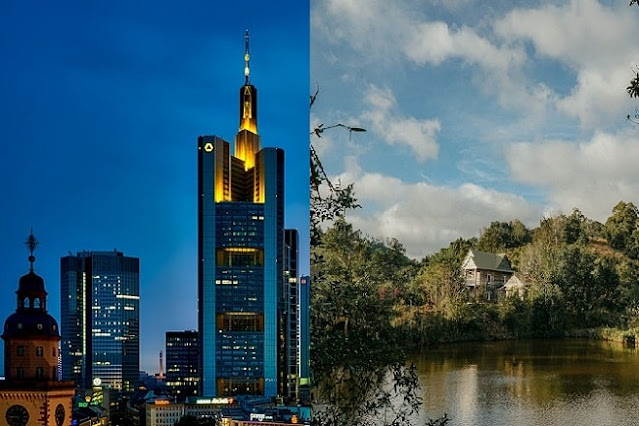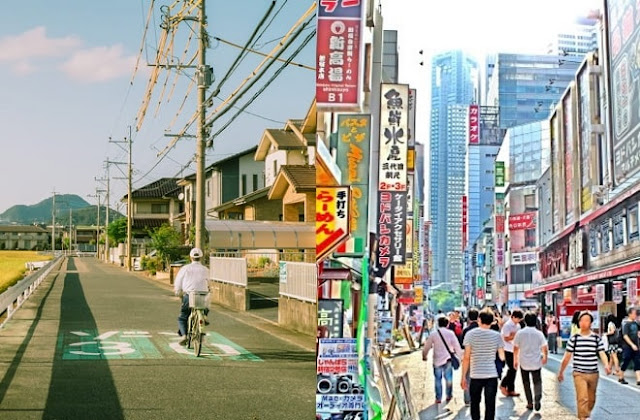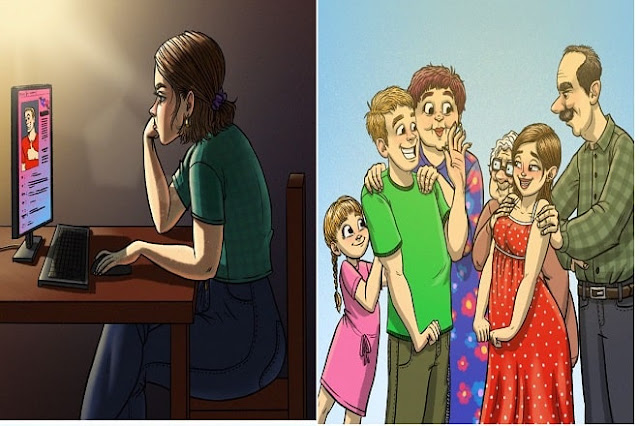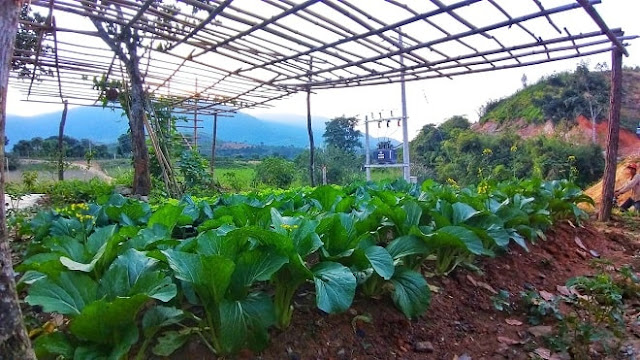1. What is it like to live in the countryside?
In the trend of moving from the city back to the countryside, many people choose to leave urban areas in search of rural life. This choice reflects a new lifestyle, accepting changes in habits and benefits in exchange for other things that they believe are better.
Globally, rural life is commonly referred to as village life. It consists of a community of residents concentrated in smaller groups than towns but larger than villages. Essentially, a village is a natural development of a community where people live from one generation to the next.
Most people prefer living in the countryside because it offers a slower pace of life and a more pleasant environment. In a famous poem by the English poet William Cowper, he wrote that rural life is where God resides. Specifically, his poem written in 1785 states: "The city is the world of man, but this country life is of God."
2. What does city life mean?
A city is a community composed of a large number of residents, with many advantages and disadvantages. There is no precise rule for how a city is formed. However, there is a widely accepted definition: "A city is a migration from a town to meet the needs of a huge population and provide modern amenities for all who live there."
Compared to rural life, cities offer more advantages such as job opportunities, recreational facilities, better transportation, higher-quality education, and easy access to all modern technologies. People love city life for its fast-paced nature, but this often leaves them longing to "slow down."
>>>Read More: Why is the countryside better for children?
3. The main differences between city life and rural life
Living in the city and in the countryside is entirely different. Life in the countryside offers more space, a pollution-free environment, clean food, and a healthier lifestyle.
On the flip side, rural residents depend on cities to access certain benefits related to education and healthcare. This reality exists not only in Vietnam but also worldwide; living in rural areas means accepting fewer opportunities for high-quality education and healthcare.
Meanwhile, city life brings a glamorous existence with all the conveniences. You are at the center of everything, where you can easily access modern amenities that color your life. Of course, life in the city is more mechanical and complex. When millions of people live in a small area, they rarely show tight-knit solidarity. This is why many perceive city life as stressful and complicated.
Let’s compare some pros and cons of life in these two places in the following table:
-
Urban settlements include cities and towns, while rural areas consist of villages and hamlets.
-
Life in urban society is complex, while life in the countryside is very simple.
-
City dwellers often belong to various classes, beliefs, religions, cultures, and statuses. In contrast, rural residents are more homogeneous, making them somewhat similar.
-
Urban life is almost disconnected from nature, while rural life is closely tied to it.
-
Urban life evolves rapidly and changes quickly, whereas rural life generally changes little or slowly if it does.
-
Urban culture is fundamentally a mix of many types of cultures. Because many different people from various cultures live in the same territory, it can often be difficult to "accept each other." Conversely, rural areas typically share a common culture, making it "easier to live together."
-
Labor division and job specialization are always present in urban areas. However, job opportunities in rural regions are limited. Thus, people move to urban areas for better job prospects.
-
In rural areas, everyone knows each other, and children must respect adults. This is less likely to occur in urban settings.
4. Analyzing the advantages of living in cities and the countryside
Choosing to live in a city or the countryside is a lifestyle choice. It's hard to say that one place is better than the other, as this depends on individual circumstances, personalities, and various external factors. The place where you feel most comfortable is the most suitable place to live. Below are some detailed analyses you can consider before making your choice.
4.1. Busy city life versus peaceful rural life
To keep pace with the busy city lifestyle, people move like machines, making urban life more stressful. However, city life ensures better civic rights and access to all modern conveniences.
In contrast, rural life is concentrated in a small area, allowing residents ample time to move comfortably. But living in a village means you have to rely on cities for most modern technologies, which are often lacking or insufficient (for example, in the context of attending university).
4.2. Cities are more polluted than rural areas
Air, noise, and water pollution are the downsides of city life. Factories and vehicles are the culprits behind this type of pollution. However, urban life offers more job opportunities compared to rural life.
Living in the countryside ensures fresh air, clean water, and tranquility. Rural residents are less likely to suffer from illnesses like asthma and bronchitis. But with fewer job opportunities, they must head to the city and accept "breathing in dust."
4.3. Comparing amenities in life
City life provides all modern advantages and recreational activities such as theaters, parks, museums, sports clubs, libraries, and monuments. Services like banks, post offices, and telecommunications have many branches, ensuring quick and comfortable operations. However, housing and land prices are higher in cities, making it difficult for newcomers to afford housing. As a result, living costs in cities are higher than in rural areas.
Living in a village, on the other hand, always provides tranquility, relaxation, and peace. Additionally, clean food and fresh air ensure a healthy life, a peaceful spirit, and more freedom than in the city. Furthermore, rural residents enjoy more spacious living areas and larger homes.
4.4. Social values and community spirit
Rural life offers more social values and responsibilities. People are closely connected through family ties.
In this regard, city dwellers tend to be "selfie enthusiasts" who are busy with their own lives. They lack connections with each other, leading to complex lives and numerous daily struggles.
Conversely, rural residents value family relationships more. Meanwhile, city life is often "looser," leading to higher divorce rates due to weak family ties.
5. Why are more people choosing to live in the countryside despite modernization?
Cities seem to meet almost all basic human needs. In fact, the number of people choosing to live in cities is still very high. However, the more modern cities become, seemingly meeting human needs, the more people feel they are "missing something." Nowadays, many choose to live in the countryside due to the numerous "blessings" that rural life provides.
Both rural and urban lives have some drawbacks, but rural life excels in many healthy aspects. Those who cherish peace and comfort often strive to take advantage of the benefits of rural living. Specifically, some of the "blessings" that rural residents enjoy include:
-
Easy living
-
No traffic jams, easy transportation
-
Clean food
-
Close proximity to nature
-
Strong family and neighborhood bonds
-
Low crime rates
-
Finding oneself (or reconnecting with oneself)
Of course, as mentioned at the beginning of this article, where is better to live depends on each person. Therefore, choose the place that you feel best suits you. Remember that wherever you are, you must "live fully" to find joy and happiness.




 The most unique carrots in the world!
The most unique carrots in the world!
 Guide to Propagating Basil Cuttings for Beginners
Guide to Propagating Basil Cuttings for Beginners
 How to take care of basil plant indoors for Beginners
How to take care of basil plant indoors for Beginners
 Interesting Facts About Ants
Interesting Facts About Ants
 Coucal bird: Natural Enemy of Snakes
Coucal bird: Natural Enemy of Snakes